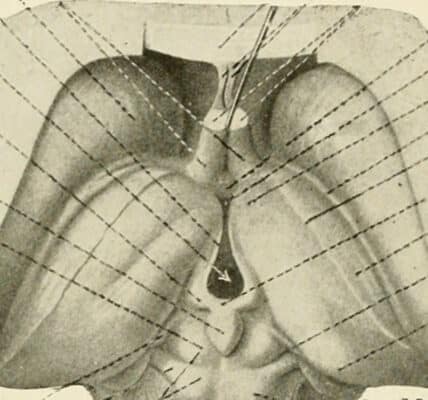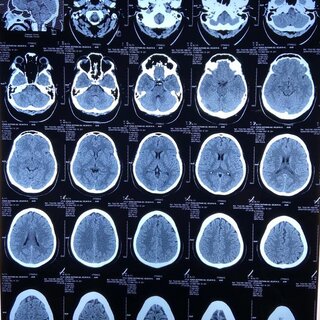The Unwanted Inheritance — Epigenetics and Addiction

As we have seen, epigenetic inheritance does not involve alteration of the DNA code, but affects the ability of any particular cell to either read that code or not. This is what enables post-traumatic psychological pain to be expressed physically, down thorough the generations.
An article from the National Center of Competence in Research Synapsy, published in the journal Frontiers in Psychiatry, explains the mechanism:
Adults who have suffered childhood trauma exhibit a higher degree of somatization (i.e., mental suffering expressed through physical complaints.
This does not necessarily imply that genes are affected, but the process certainly affects addiction-proneness. In other words, the proclivity for addictive substances can be passed on from parent to child.
Several institutions have concerned themselves with “the links between the post-traumatic stress disorder of mothers exposed to domestic violence and the severity of their — and their offspring’s — somatization.” This transfer of vulnerability typically shows up when the child reaches school age:
A number of studies suggest a link between somatization in children and in their parents. For example, children with early attachment disorders express more physical pain if their mothers show little maternal sensitivity.
And what is addiction, if not an attempt to escape pain? One study focused on…
[…] 64 mother-child pairs, where the mothers were suffering from post-traumatic stress disorder (PTSD) in response to a history of adult domestic violence, often following physical or sexual abuse and exposure to family violence during their own childhood.
The researchers found that mothers suffering from PTSD are more prone to physical problems that are not detectable by medical examination. The severity of those problems is noticeably connected with the tendency of the child to experience somatization at this early age. This transmission of physical suffering means that a pediatrician would do well to inquire into the history of family trauma.
As if that weren’t problematic enough, the field of epigenetics — which is concerned with how “the expression of DNA can be changed without changing the structure of the DNA itself” — plays a part.
The factors involved include the mother’s eating patterns, as well as her smoking and/or alcohol consumption, her stress level during pregnancy, and the presence of gestational diabetes mellitus.
More published papers point to the recognition that epigenetics can cause a child to develop addiction-proneness. The following quotation is from “How stress echoes down the generations”:
Emerging evidence suggests that the consequences of mistreatment in childhood may persist down the generations, affecting a victim’s children or grand-children, even if they have experienced no abuse themselves.
This sort of study is difficult to conduct with people, because decades of observation would be involved, and the time span is not the only factor that poses problems. Fortunately, our accomplices, the mice and rats, are available to facilitate research of this kind. Tufts University research indicated that mice and humans are similar in their propensity to pass along the effects of psychological stress into the next generation, and even the next one after that:
Organisms regulate the activity of their genes throughout their lives, switching different genes on and off as circumstances require. It is possible that such “epigenetic” phenomena can be passed, along with the genes themselves, to an animal’s descendants.
They offer a mechanism by which an animal’s life experiences can have effects on its offspring. Unless genetic engineering can one day be perfected, changes in genes are hard-wired. But epigenetic effects might be treatable…
It becomes increasingly apparent that such epigenetic effects include the tendency to become addicted. Another study that depended on mice contributing their bodies and lives to such research points to the role of fathers:
Male lab mice that led a sedentary life and consumed a high-fat diet before conceiving offspring were more likely to father children with higher levels of body fat, glucose intolerance, and abnormal glucose uptake in skeletal muscles — the latter two being signs of diabetes.
However, male mice that exercised before fathering children were able to negate the negative effects on their offspring. Researchers said that exercise improved sperm motility and caused genetic changes in sperm that could reduce the risk of inheriting risk factors for obesity and diabetes.
Another interesting detail here is that “researchers have long known that using alcohol, tobacco, and other drugs can decrease fertility among men.” Coincidentally, these just happen to be substances to which many humans are addicted.
This subject will be addressed further in an upcoming post.
Written by Pat Hartman. First published March 28, 2025.
Sources:
“Post-traumatic pain expressed physically from generation to generation,” MedicalXpress.com, March 29, 2022.
“What is epigenetics?,” WhatIsEpigenetics.com, June 19, 2018.
“How stress echoes down the generations,” Economist.com, May 24, 2018.
“Men Who Exercise Regularly Produce Children with Healthier Genes,” Healthline.com, October 25, 2018.
Image Copyright: Ri Butov/Pixabay




